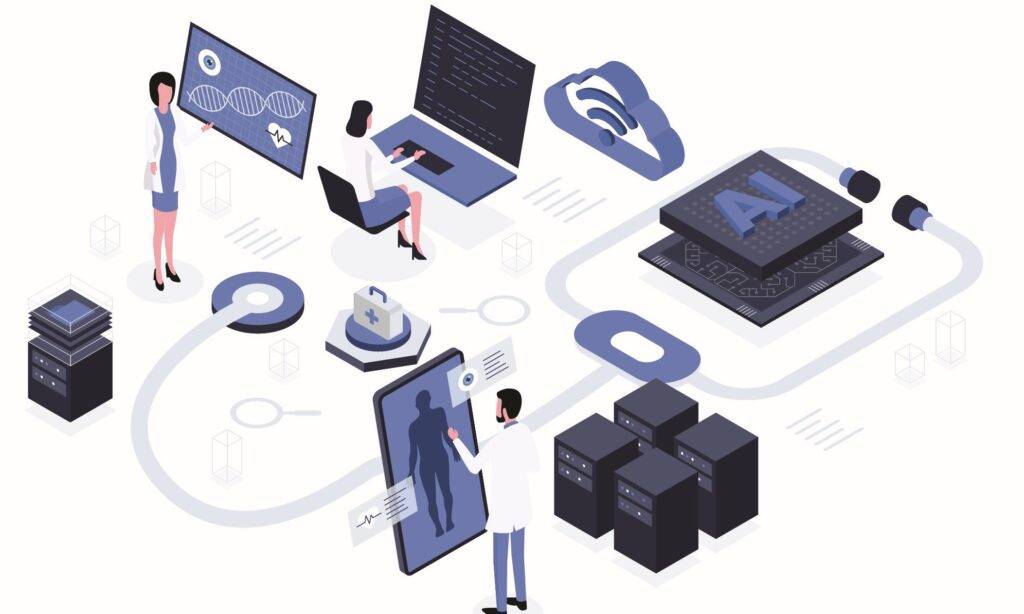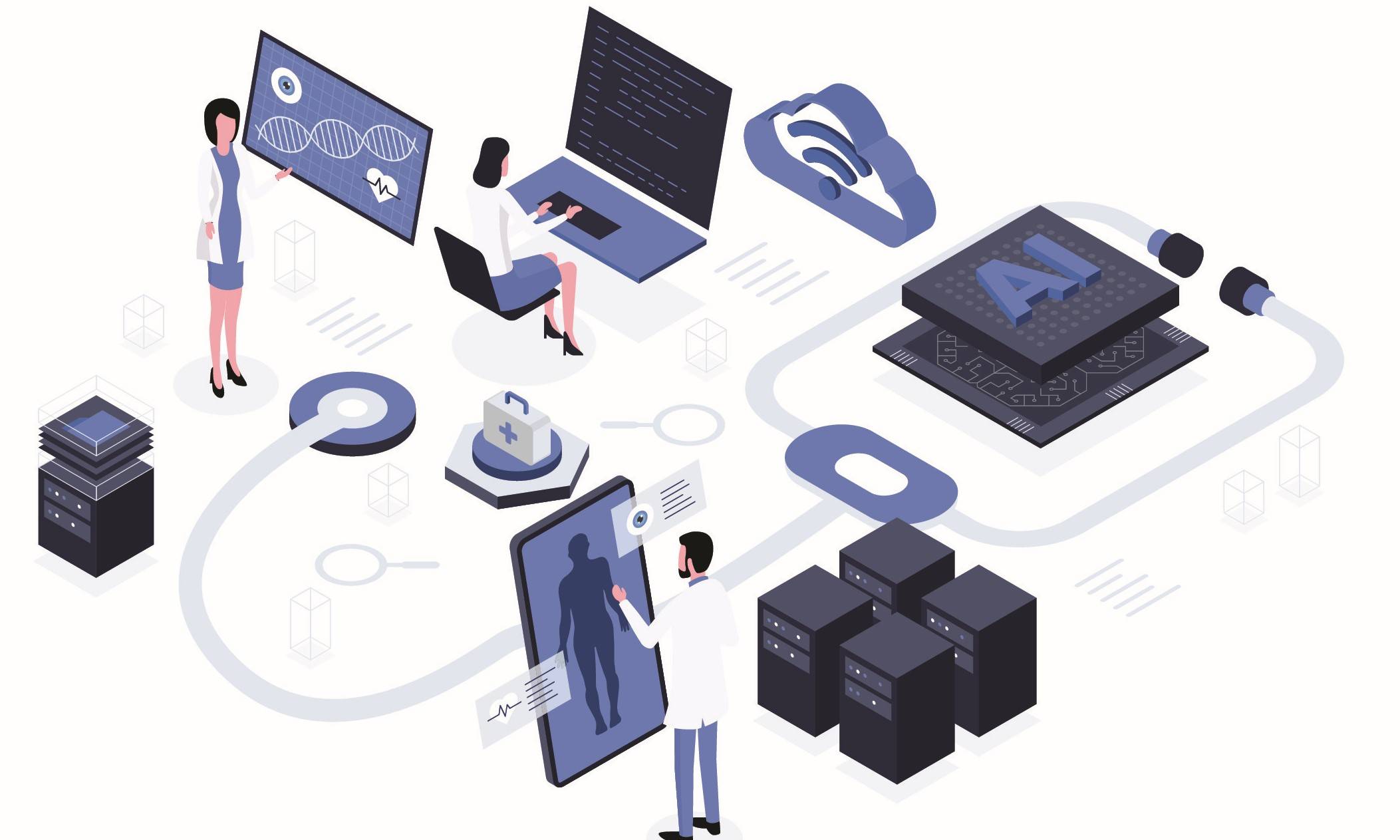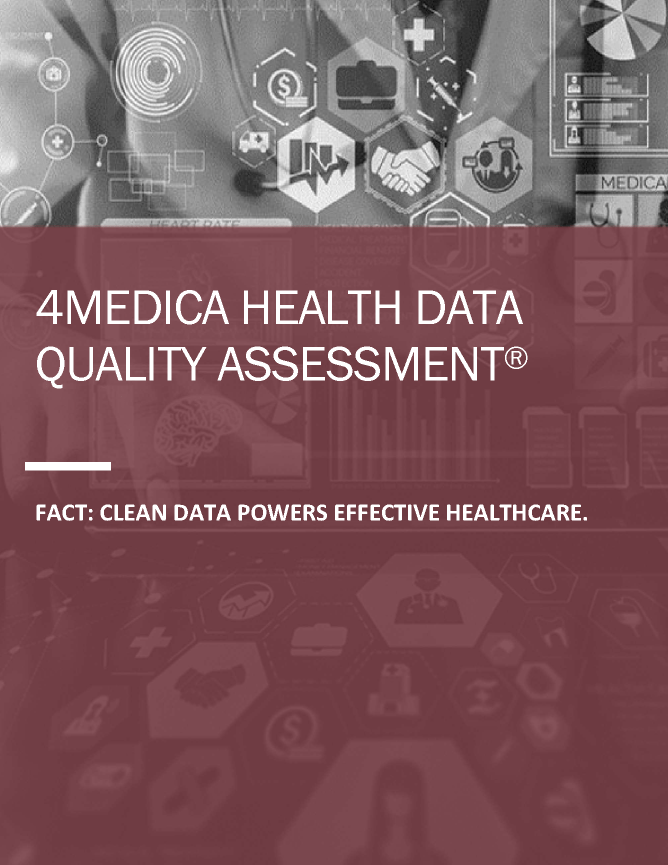In today’s digital age, the healthcare industry is undergoing a significant transformation with the adoption of health information exchange (HIE) and interoperability. These advancements have the potential to revolutionize the way healthcare is delivered, enabling seamless data sharing among healthcare providers and improving patient outcomes.
This blog post explores the impact of health information exchange on medical practices and highlights the ongoing efforts to enhance interoperability for a more efficient and patient-centered healthcare system.

How does Health Information Exchange affect your practice?
Facilitating Seamless Data Sharing
Health Information Exchange enables medical practitioners to securely share patient health records, diagnostic reports, medical histories, and other essential information with authorized healthcare providers. The ability to access real-time patient data across different healthcare systems improves care coordination, reduces administrative burden, and enhances patient safety. For example, if a patient visits an emergency department, the attending physicians can quickly obtain their medical history, previous lab results, and allergies, leading to more accurate diagnoses and appropriate treatment decisions.
Improving Patient Outcomes
With access to comprehensive and up-to-date patient data, healthcare providers can make more informed decisions, leading to improved patient outcomes. A complete view of a patient’s medical history, including medications, past treatments, and chronic conditions, helps healthcare professionals devise personalized treatment plans. Health Information Exchange empowers providers to deliver patient-centric care, which can lead to better adherence to treatment plans and ultimately, better health outcomes.
Enhancing Communication Among Healthcare Providers
Health Information Exchange fosters better communication and collaboration among healthcare professionals. Specialists, primary care physicians, nurses, and other stakeholders can efficiently exchange information, coordinate care, and stay updated on a patient’s progress, leading to a more holistic approach to healthcare delivery. Improved communication reduces the risk of medical errors, ensures continuity of care, and enhances patient satisfaction.
What is being done to improve health information exchange and interoperability advancement?
Standardization of Health Data
To promote seamless interoperability, efforts are underway to standardize health data formats, coding systems, and data exchange protocols. Standardization ensures that data can be understood and utilized consistently across different healthcare IT systems and platforms. For instance, the adoption of standardized coding systems like SNOMED CT (Systematized Nomenclature of Medicine – Clinical Terms) and LOINC (Logical Observation Identifiers Names and Codes) enables interoperability between different electronic health record (EHR) systems, ensuring a common language for sharing clinical data.
Leveraging Health Information Exchange Networks
Health Information Exchange networks act as intermediaries, connecting various healthcare organizations and enabling secure data exchange. By joining these networks, healthcare providers can access a broader pool of patient data, which is particularly beneficial for patients who seek care from multiple providers. These networks facilitate the exchange of data across different regions and healthcare settings, improving the continuity of care for patients, especially in cases of emergencies or when patients move between locations.
Emphasizing Data Security and Privacy
As healthcare embraces digital transformation, ensuring data security and privacy is of paramount importance. Robust encryption, user authentication, and compliance with privacy regulations like HIPAA (Health Insurance Portability and Accountability Act) are vital in safeguarding patient information during health information exchange. Organizations are investing in robust cybersecurity measures and privacy protocols to build trust among patients and healthcare providers, ensuring the safe and confidential exchange of sensitive patient data.
Reducing duplicate testing
Minimizing Healthcare Costs
Health Information Exchange helps reduce unnecessary duplicate testing by providing access to a patient’s complete medical history, including previous test results. When healthcare providers can readily access a patient’s laboratory, imaging, and diagnostic test results, they can avoid ordering redundant tests. This not only saves time but also reduces overall healthcare costs, benefiting both patients and healthcare systems.
Optimizing Resource Utilization
By eliminating duplicate testing, healthcare facilities can optimize their resource utilization. Valuable time, staff, and medical equipment can be directed towards other critical patient care activities, leading to increased operational efficiency. Moreover, unnecessary testing can sometimes lead to false-positive or false-negative results, which may complicate diagnosis and delay appropriate treatment.
Avoiding medication errors with health information exchange and interoperability
Improving Medication Reconciliation
Health Information Exchange supports medication reconciliation by allowing healthcare providers to access a patient’s medication history from various sources. Medication reconciliation is a process where providers compare the medications a patient is currently taking with those they were previously prescribed. This helps identify discrepancies and ensures that accurate and up-to-date medication information is available, reducing the risk of adverse drug interactions and medication errors.
Enhancing Medication Safety
Interoperable systems facilitate electronic prescribing, making it easier for healthcare providers to send prescriptions directly to pharmacies. This process reduces the chances of errors that might occur during traditional paper-based prescription methods, enhancing patient safety. Electronic prescribing systems also incorporate drug-drug interaction checks and allergy alerts, providing clinicians with essential information to make safer prescribing decisions.
Avoiding readmissions
Enhancing Post-Discharge Care Coordination
Health Information Exchange enables improved post-discharge care coordination. Discharging physicians can share patient information with primary care providers and specialists, ensuring continuity of care and reducing the likelihood of avoidable readmissions. When a patient is discharged, all relevant information about their condition, medications, and follow-up care is readily accessible by the next healthcare provider involved in their treatment, enabling a smoother transition from hospital to home-based care.
Identifying High-Risk Patients
Interoperable systems allow healthcare providers to identify high-risk patients who require additional attention after discharge. By closely monitoring these patients and providing timely interventions, readmission rates can be significantly reduced. Health Information Exchange facilitates the sharing of data across care settings, enabling the identification of patients with complex medical conditions or those with a history of frequent readmissions, prompting healthcare teams to provide targeted and proactive care.
Improving decision making
Access to Comprehensive Patient Data
Interoperable health information systems provide healthcare professionals with a complete view of a patient’s health information, including medical history, lab results, imaging reports, and more. This comprehensive data empowers providers to make well-informed and timely decisions for their patients. Having access to a patient’s complete health record can be particularly critical in emergency situations or when treating patients with complex medical conditions.
Informed Treatment Planning
Health Information Exchange enables multi-disciplinary teams to collaborate on complex cases and develop comprehensive treatment plans. The ability to access the collective expertise and insights of various specialists enhances the quality of care and patient satisfaction. For example, if a patient presents with a combination of medical conditions, healthcare providers can work together to create a personalized treatment plan that addresses all aspects of the patient’s health, leading to better health outcomes.
Enhancing care coordination with health information exchange and interoperability
Streamlining Referrals
Interoperability facilitates seamless referrals between healthcare providers. Primary care physicians can efficiently refer patients to specialists, and the receiving providers can access relevant patient information, ensuring a smooth transition of care. This streamlined process reduces wait times for specialty consultations and helps ensure that patients receive timely and appropriate care from the appropriate specialists.
Creating Comprehensive Care Plans
Health Information Exchange allows care teams to create comprehensive and patient-centric care plans. This ensures that all healthcare providers involved in a patient’s treatment are aligned in their approach, leading to more effective and coordinated care delivery. For example, in cases where a patient is managing multiple chronic conditions, care teams can collaborate to develop care plans that address each condition’s unique requirements while avoiding conflicting treatments.
Defining Interoperability
Interoperability Levels (Foundational, Structural, Semantic)
Interoperability is classified into three levels – foundational, structural, and semantic – each representing a different aspect of data exchange and compatibility.
- Foundational interoperability ensures the physical movement of data between systems.
- Structural interoperability ensures the format and structure of the data are compatible.
- Semantic interoperability goes beyond data exchange and ensures that the data is interpreted accurately, allowing healthcare providers to understand and use the information effectively.
Importance of Interoperability Standards
Establishing and adhering to interoperability standards is crucial for ensuring that different healthcare IT systems can effectively communicate and exchange data. These standards promote consistency, accuracy, and reliability in health information exchange. For example, the use of standardized terminologies and data formats ensures that patient information is interpreted consistently across different systems, reducing the potential for errors and improving patient care.
Defining the Difference between Health Information Exchange and Interoperability
HIE as a Tool for Achieving Interoperability
Health Information Exchange serves as a practical tool for achieving interoperability by enabling the seamless sharing of health data among diverse healthcare entities. It allows disparate systems to communicate and exchange information, fostering better collaboration and information flow in the healthcare ecosystem.
Interoperability Beyond HIE
Interoperability extends beyond the concept of health information exchange. It encompasses a broader vision of seamlessly integrating various healthcare systems and applications to improve overall healthcare delivery and patient experiences. Interoperability aims to create a comprehensive and interconnected healthcare ecosystem where data flows smoothly, and different IT systems work together seamlessly.
Interoperability Leading to Health Information Exchange
Breaking Down Data Silos
Interoperability initiatives break down data silos that have traditionally hindered efficient information exchange among healthcare providers. By promoting data sharing, healthcare organizations can work together more effectively to deliver better patient outcomes. For example, interoperable systems allow laboratory results from one healthcare facility to be seamlessly accessible by primary care providers or specialists in another facility, avoiding unnecessary delays in diagnosis and treatment.
Enabling Cross-Platform Data Sharing
The establishment of interoperability standards enables cross-platform data sharing, allowing healthcare providers to access patient information regardless of the specific IT systems they use. This leads to greater flexibility and accessibility in health information exchange. For instance, a patient’s EHR data can be shared between different hospitals, clinics, and even with the patient themselves through patient portals, enhancing patient engagement and empowerment.
Interoperability in History
Evolution of Healthcare IT Systems
Over the years, healthcare IT systems have evolved from standalone, isolated systems to interconnected networks that emphasize data sharing and interoperability. In the past, many healthcare organizations used proprietary software and data formats, which hindered information exchange. However, advancements in technology and the growing recognition of the importance of interoperability have led to significant improvements in data exchange capabilities.
Milestones in Interoperability Advancements
Significant milestones in healthcare interoperability have paved the way for the current state of health information exchange. These advancements have been crucial in shaping the future of healthcare delivery. Examples of milestones include the introduction of Health Level Seven (HL7) messaging standards, the development of Fast Healthcare Interoperability Resources (FHIR), and the implementation of health information exchange networks that span regional and national boundaries.
Superior Health Information Exchange and Interoperability Services
4medica is at the forefront of advancing healthcare through our state-of-the-art health information exchange (HIE) and interoperability services. Our platform enables seamless data sharing, empowers informed decision-making, and enhances patient outcomes. With a strong focus on data security, privacy, and standardization, we are committed to creating a patient-centric and efficient healthcare ecosystem. Join us in this transformative journey to build a future where healthcare is seamlessly connected and patients receive the best possible care.
Contact us today. Together, we can make a significant impact on the future of healthcare.

